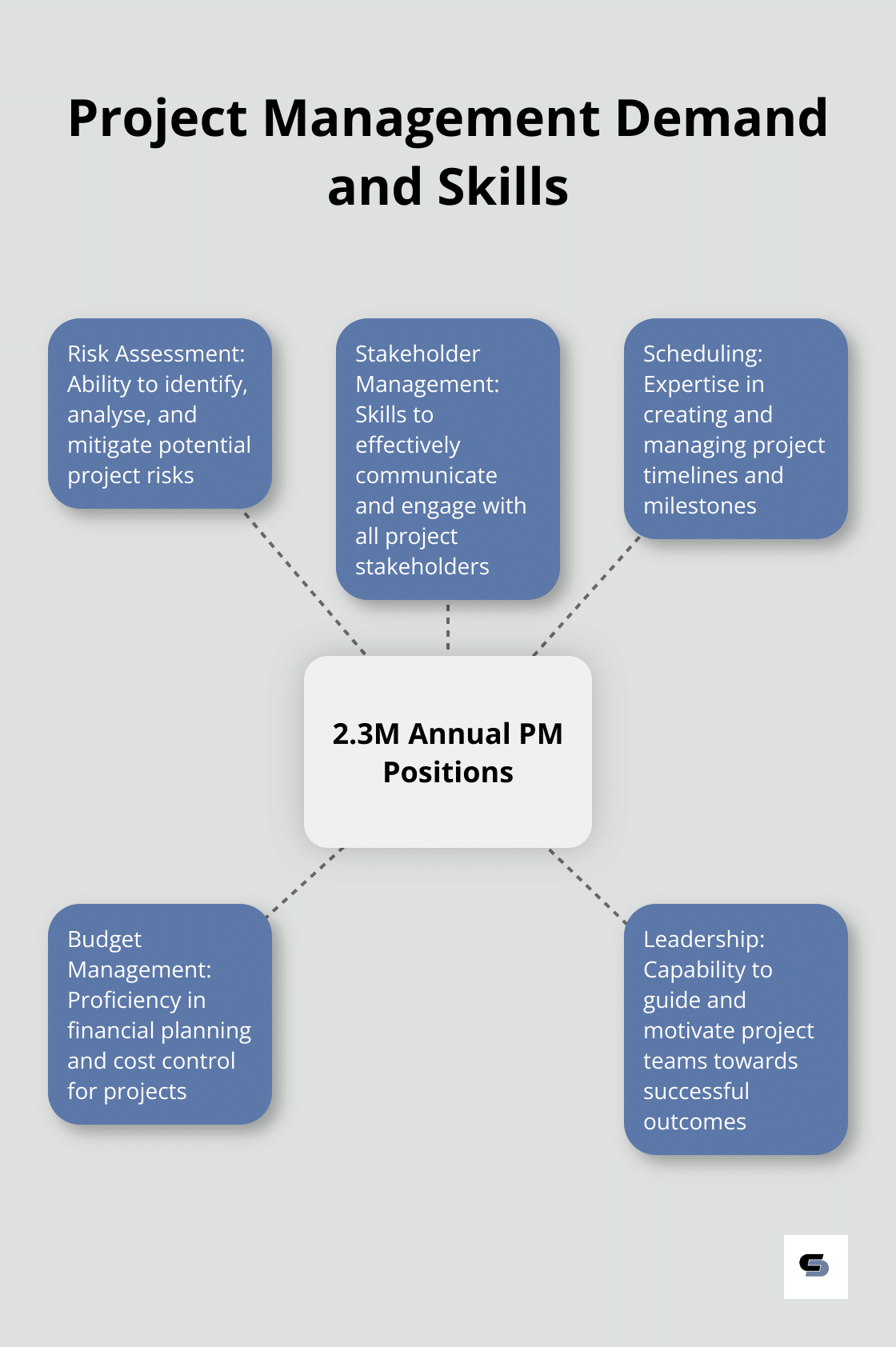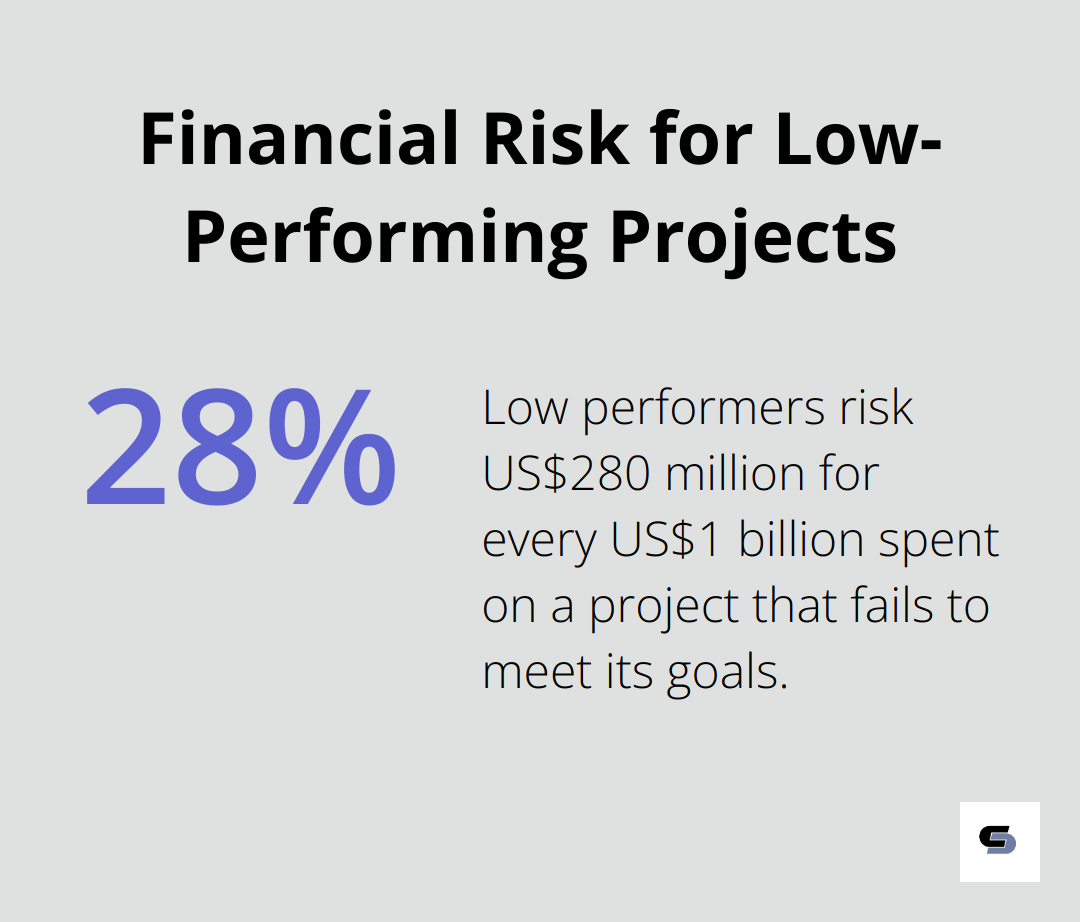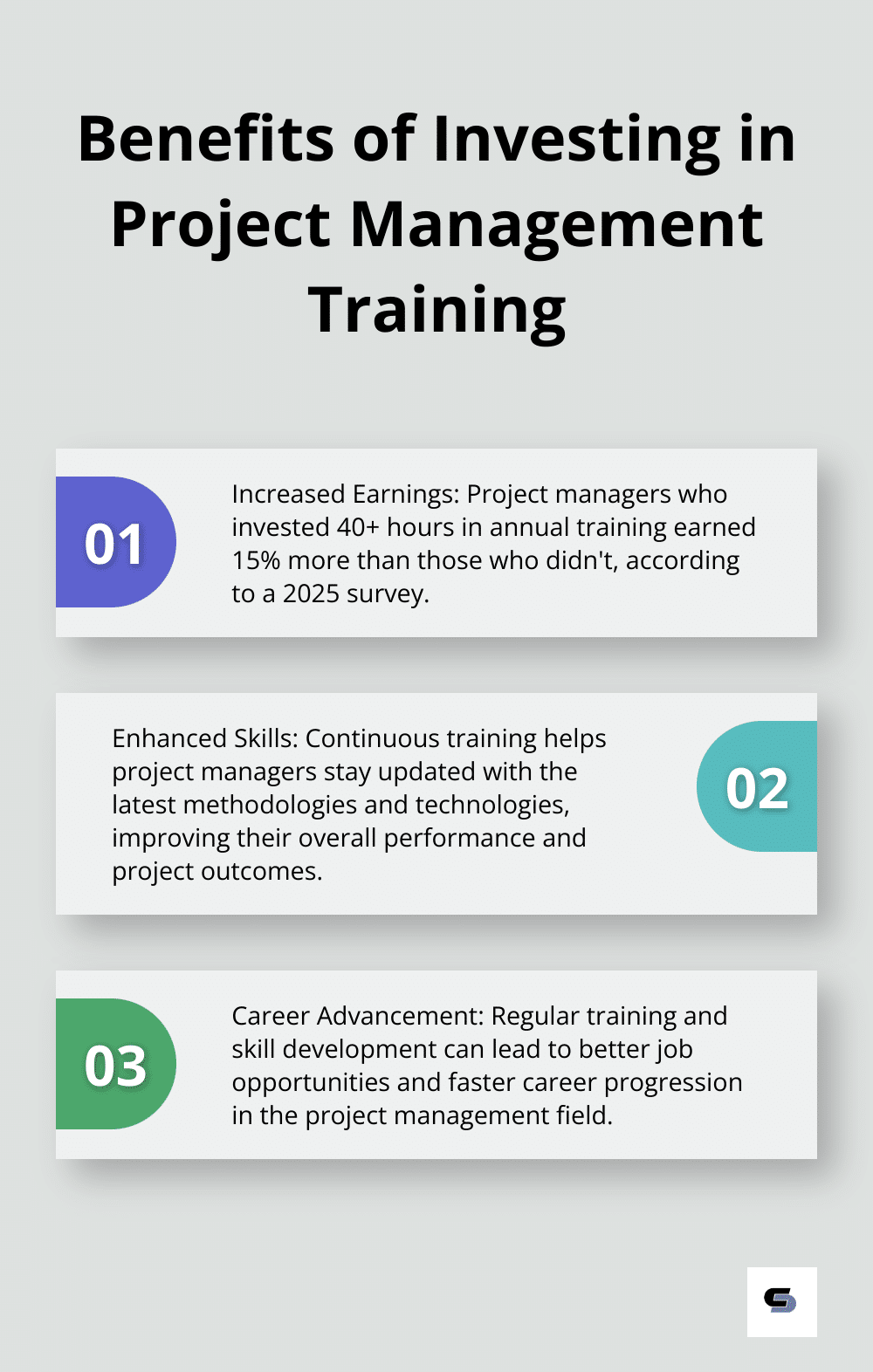How to Choose the Best Project Management Training Class
At Cameron Construction, we understand the importance of effective project management in delivering successful outcomes.
Choosing the right project management training class can significantly impact your career and project success rates.
This guide will help you navigate the process of selecting the best Project Management Training Classes for your needs and goals.
What Are Your Project Management Training Needs?
Evaluate Your Current Skill Set
The first step to enhance your project management skills is to assess your current abilities. Do you struggle with risk assessment? Is stakeholder management a challenge? Perhaps you excel at scheduling but need improvement in budget management. According to PMI’s Talent Gap report, 2.3 million people will be needed each year to fill all of the project management oriented positions expected.

Define Your Career Aspirations
Your career goals should guide your training choices. If you aim for a senior project management role in construction, focus on advanced risk management and large-scale project coordination. For those considering a shift to IT project management, certifications like PRINCE2 Agile or PMI-ACP could prove beneficial.
Align Training with Industry Demands
Different industries have unique project management requirements. Construction project managers need knowledge of building codes and safety regulations. IT project managers require a solid understanding of agile methodologies. Healthcare project managers must understand compliance and patient privacy laws. Research industry-specific certifications and training programmes to meet these demands.
Consider Practical Application
The goal isn’t to accumulate certifications, but to gain practical skills you can apply immediately. Project managers who continually update their skills in line with industry trends are more likely to deliver projects on time and within budget. Try to find training programmes that offer hands-on experience and real-world case studies.
Assess Training Formats
Consider your learning style and schedule when choosing a training format. Options include in-person classes, online courses, and hybrid models. Some people prefer the structure of classroom learning, while others thrive with the flexibility of online courses. Evaluate which format will best suit your needs and lifestyle.
As you identify your project management training needs, it’s essential to consider the key features that make a training class effective. Let’s explore these features in the next section to help you make an informed decision.
What Makes a Project Management Training Class Effective?
Real-World Application
Effective training programmes teach more than theory; they provide hands-on experience with real-world scenarios. Look for classes that incorporate case studies from your industry. Construction project managers should seek out programmes that include examples of managing subcontractors, dealing with weather delays, or navigating local building codes.
Expert Instructors
The quality of instruction can make or break a training class. Programmes led by instructors with extensive practical experience offer invaluable insights that go beyond textbook knowledge. These seasoned professionals share war stories, best practices, and lessons learned from years in the field.
Comprehensive Curriculum
A well-rounded training programme covers all aspects of project management. This includes risk management, stakeholder communication, budgeting, scheduling, and team leadership. The Project Management Institute (PMI) reports that low performers risk US$280 million for every US$1 billion spent on a project if it fails to meet its goals. A comprehensive curriculum helps address these costly mistakes.

Certification Preparation
Many employers now require project management certifications. A good training programme aligns with recognised certifications like PMP, PRINCE2, or Agile. These programmes often include exam prep materials, practice tests, and study guides. PMI reports that PMP-certified project managers earn 33% more on average than their non-certified peers.
Flexible Learning Options
In today’s fast-paced world, flexibility is key. Try to find programmes that offer a mix of in-person and online learning options. This allows you to tailor your learning experience to your schedule and preferred learning style. Some programmes even offer self-paced modules (allowing you to progress at your own speed).
When selecting a project management training class, consider these features carefully. The right programme will not only enhance your skills but also boost your career prospects and project success rates. Now, let’s explore how to evaluate different training providers and delivery methods to find the perfect fit for your needs.
How to Evaluate Project Management Training Options
Compare Learning Formats
In-person classes offer direct interaction with instructors and peers, which fosters immediate feedback and networking opportunities. Online courses provide flexibility, which allows you to learn at your own pace and from any location. Hybrid options combine both, which offers a balance of convenience and personal interaction.
Over the last three years, respondents to the PMI Annual Global Survey on Project Management have reported a steady increase in the use of hybrid approaches in project management. This suggests that a mix of learning methods might be most effective for many professionals.
Assess Provider Reputation
Research the track record of potential training providers. Look for success rates, alumni testimonials, and industry partnerships. The Australian Institute of Project Management reports that training providers with industry collaborations tend to offer more up-to-date and relevant content.
Check online reviews and ask for recommendations from colleagues. A reputable provider should be transparent about their course content, instructor qualifications, and post-training support.
Verify Accreditation and Recognition
Ensure the training programme is accredited by recognised bodies in the project management field. For instance, courses endorsed by the Project Management Institute (PMI) or PRINCE2 carry significant weight in the industry.
An associate’s degree in project management won’t land you the best job, but this degree will allow you to get into the field and get entry-level positions. This highlights the importance of choosing a recognised course for career advancement.
Evaluate Cost and Time Investment
Consider the total cost of the training, including materials, exam fees, and potential travel expenses for in-person sessions. Compare this with your budget and the potential return on investment in terms of career advancement and salary increase.
Time commitment is equally important. A 2025 survey by the Australian Project Management Recruitment Agency revealed that project managers who invested in 40+ hours of annual training earned 15% more than those who didn’t. However, balance this with your current work commitments to ensure you can fully engage with the course material.

Align with Industry Needs
Try to select a programme that aligns with your industry’s specific requirements. For example, construction project managers should look for courses that cover topics like site safety management and building regulations (which are essential in the field).
The right training can significantly boost your project management skills and career prospects, making it a worthwhile investment in your professional future.
Final Thoughts
Selecting the right project management training class will propel your professional development. You must assess your needs, evaluate programme features, and consider delivery methods to make an informed decision. This choice will align with your career goals and industry requirements, setting you up for success.
Project management training classes offer long-lasting benefits. They equip you with essential skills to handle complex projects, manage teams effectively, and deliver results on time and within budget. These skills prove invaluable across industries, from construction to IT and healthcare (and beyond).
The project management landscape constantly evolves, with new methodologies and technologies emerging regularly. Cameron Construction understands the importance of skilled project management in delivering successful home renovations and extensions. Don’t delay in taking this step for your career. Research project management training classes that align with your goals, industry, and learning preferences today.






